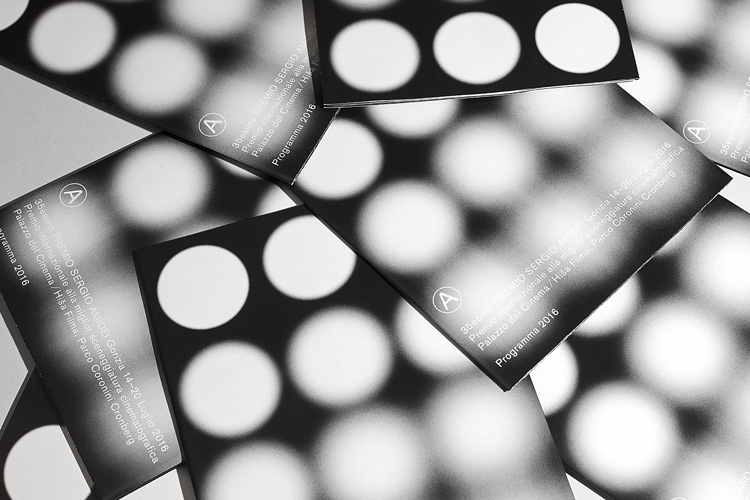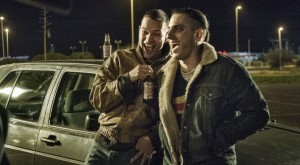
By Simonetta Menossi.
The International Sergio Amidei Award for Best Film Script is a yearly event that takes place in Gorizia, Italy. The Award is entitled in the memory of Sergio Amidei (1904-1981), one of the most famous screenwriters of Italian Neorealism. He worked with director Roberto Rossellini for whom he co-wrote some of his best post-war films, such as Rome Open City (1945). Each year a jury, which includes screenwriters Massimo Gaudisio and Doriana Leodeff, director Marco Risi, producer Silvia D’Amico, and actress Giovanna Ralli meet in May to decree the award winner of the year. Historical director Ettore Scola, who chaired the Award Jury for decades, has recently passed away and screenwriter-director Francesco Bruni took over from him with the same passion and dedication for the event.
The 35th edition, which took place from July 14th to the 20th, included a series of events (roundtables, meeting with the author, and workshops) along with an intense film watching programming. Lorenza Mazzetti’s “Writings of the self and for cinema” opened the series of Meeting with the Author. Mazzetti is a minute old lady with a strong personality, whose has enjoyed unbelievable wealth but also has witnessed the most horrific plights. Director Mazzetti, founder of the British Free Cinema movement, described her personal history, the loss of her parents, the drama she lived when Nazis murdered her adopted family, Robert Einstein (cousin of Albert) and aunt Nina, up to her solitary flight to London where she hoped to forget those atrocities. Therefore, the wish to disentangle the knots of a long repression process led Mazzetti to, unconsciously at first, explore human nature and her own in primis. Her body of work, then, is the result of her unconscious’ awakening and the need to freely express her everlasting hope in mankind.
Mazzetti studied cinema in World War 2 London, a “dark and hellish city”, she says, where sun could not shine anymore because famine and anguish had frozen it. Kafka’s Metamorphosis (1915) was Marchetti’s companion in those first years in that frightening corner of the world. That book ended up inspiring her first short, K (1954), while Together (1956), the story of a couple of deaf-mute young men who daily faced people’s derision, was her second and last film. Mazzetti clearly stated that she did not aim at capturing the “true truth” in her films. Rather, she wanted to portray a social condition and the existential tragedy that only human solidarity could mend. The director confessed not to appreciate the French cinema truth movement because she did not film reality to simply register it, but to transform it and go beyond it. In other words, she was an outsider artist who looked for poetry in a London imbued with the chaos of a metropolitan uproar. At the end of her studies, she moved back to Florence, to her twin sister Paola. Now she dedicates her life to writing and painting.

The 35th Amidei Award edition also included a retrospective of Carlo Verdone’s films. In his works, both as a director and actor, Verdone tells tics and obsessions of eccentric characters. Comedy is Verdone’s favorite film genre because, “often”, he says, “it renders characters’ difficulties better than any drama” and in every character’s voice there is a profound truth. Verdone himself selected five of his films to be screened at the Award. He chose Bianco Rosso e Verdone (1981), a road movie in which three men separately traveling by car must reach their respective polling places, but, on their way, encounter a series of exhilarating adventures; Borotalco (1982), a love story based on deceits and lies that steal audience’s laughter; Compagni di Scuola (1988), a school reunion packed with former students’ frustrations and dissatisfaction, an event inspired by an actual catastrophic, but hilarious, school reunion that Verdone and Christian De Sica, his fellow actor and in-real-life brother-in-law, attended; Maledetto il giorno che t’ho incontrato (1992), the drama of a tormented love relationship between two patients in crisis; and, finally, Gallo Cedrone (1998), a series of incredible flashbacks telling the life story of a man, kidnapped in an Arab country for futile reasons and condemned to death there. Each of these films is a choral endeavor imbued with film history. Every comedic character of his, in fact, is a reminiscence of other emblematic figures in Italian comedy, especially those of Fellini’s movies, such as the Valentino-like character in The White Sheik (1952), which was purposefully screened as well.
The award organization, the Associazione Premio Sergio Amidei, reserves special treatment every year to the mix of distribution, cultural promotion, and training. On July 17th, the program included a workshop on Film Criticism with journalist Enrico Magrelli, host of the RAI3 radio program Hollywood Party, as a special guest. In the first part of the workshop, a group of students had to review a film screened at the contest, which they had previously watched. I reviewed Non essere cattivo (Do Not be Bad, 2015). Film reviewing is not my primary activity and I found to challenging to reduce a film that had touched me so profoundly to twenty lines. Nevertheless, I accomplished the task. In the second part of the workshop, journalist Magrelli read each film review and provided us with precious pieces of advice. When my turn came, he told me that a film reviewer must always be aware of his audience’s identity, must think that his readers have no previous knowledge of the reviewed film and, therefore, they must be “captured” since the beginning. I had gotten it all wrong. Yet, apart from the writing technicalities, I learned the relevance of the honesty and responsibility that a film reviewer and film scholar must reserve to the readers because every critique or argument counts and must be motivated. After all, a review or an academic essay becomes the cultural mediator between the “product” and the “consumer”. The awarded “product”, understood and valued as “work of art in the age of digital reproduction” was precisely Non essere cattivo.

Claudio Caligari’s film, Non essere cattivo, is a “punch in the stomach.” The film tells the long-lasting friendship between Vittorio (Alessandro Borghi) and Cesare (Luca Marinelli), two young men lost in the vortex of drugs and alcohol. They survive in the outskirts of a 1990s Rome committing petty crimes. They are like brothers, but do not share the same life view. If Vittorio wants to create his own family, find a respectable job, leave behind his lawless life, and lead an adult existence, Cesare is not able to renounce his daily drug trips and revelry. Their life paths meet and diverge in more than one occasion up to the climax of the film’s plot. Yet, the film does not simply tell a slice of the degraded life of two young men.
The film represents the drama of two “children” who try to find a way out to survive. One the one hand, there is Debora, Cesare’s 10-year-old niece. Debora, who lives with Cesare and her maternal grandmother (Elisabetta De Vito) suffers from AIDS, the same disease that took away her mother; on the other hand, there is Cesare himself, a young man whose behavior, sensibility, and lack of responsibility embody an ageless child in crisis. Neither of them can take care of themselves. For various reasons, they must resort to the adults. Cesare’s mother takes care of Debora (Alice Clementi), but not the fatherless Cesare. Therefore, he is forced to find protection, motivation, and a valuable example outside of his family bonds. Vittorio represents his father figure. Yet, the film does not show a family in crisis, as one might think, rather the desperation of two children deprived of a quiet childhood and affection living marginalized from the Roman society. The film is worthwhile watching.
Simonetta Menossi is an Italian independent Film Studies scholar. She is currently applying for the Doctoral Program in Studi Storico Artistici ed Audiovisivi at the Università degli Studi di Udine, Udine, Italy.
